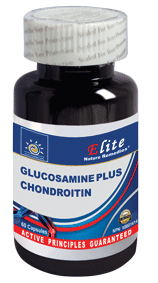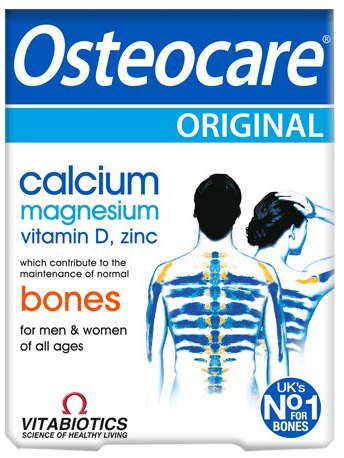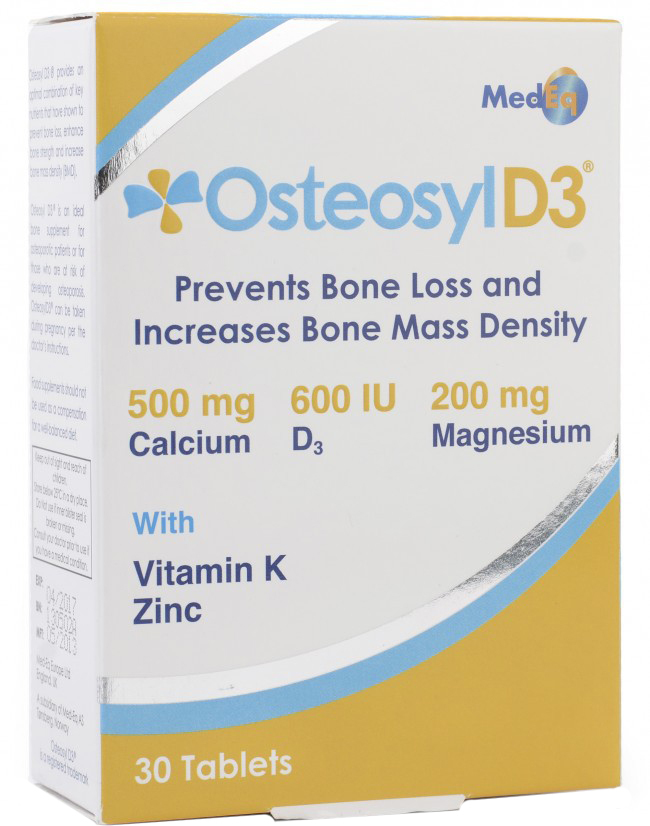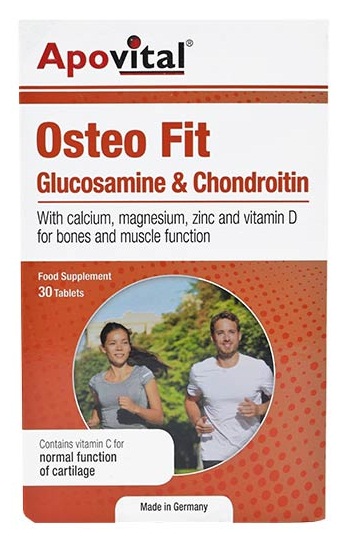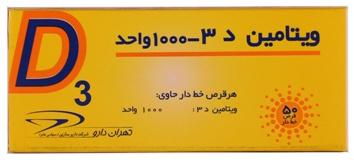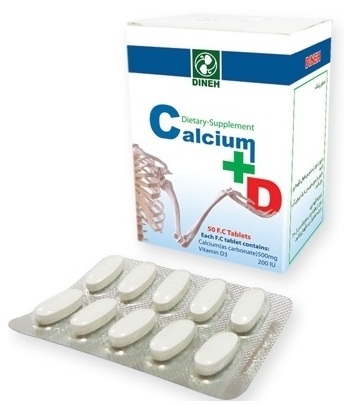مشخصات محصول
گلوکوزامین پلاس کندرویتین کپسول
GLUCOSAMINE PLUS CHONDROITIN CAP
مشخصات محصول
-
نام عمومی انگلیسیGLUCOSAMINE PLUS CHONDROITIN CAP
-
نام برند انگلیسیELITE®
-
نام عمومی فارسیگلوکوزامین پلاس کندرویتین کپسول
-
نام برند فارسیالیت®
-
سازندهElite Nature Remedies
-
کد eRxeRx126945
اطلاعات تخصصی
گلوکوزامین پلاس کندرویتین کپسول
GLUCOSAMINE PLUS CHONDROITIN CAP
Chondroitin sulfate is a chemical that is normally found in cartilage around joints in the body. Chondroitin sulfate is manufactured from animal sources, such as cow cartilage.
Chondroitin sulfate is used for osteoarthritis. It is often used in combination with other products, including manganese ascorbate, glucosamine sulfate, glucosamine hydrochloride, or N-acetyl glucosamine. Research from a couple of decades ago showed that chondroitin sulfate helped arthritis pain when taken with conventional medicines, such as aspirin, for pain and swelling. But later research wasn’t so positive. Now, scientists believe that, overall, chondroitin sulfate may reduce arthritis pain slightly.
Some people use chondroitin sulfate for heart disease, weak bones (osteoporosis), and high cholesterol. Chondroitin sulfate is also used in a complex with iron for treating iron-deficiency anemia.
Some people with arthritis use ointments or skin creams for pain that contain chondroitin sulfate, in combination with glucosamine sulfate, shark cartilage, and camphor. But as far as we know, chondroitin sulfate isn’t absorbed through the skin. That would mean that any benefit from these creams and ointments is due to some other ingredient.
How effective is it?
Possibly effective for..
Dry eyes as an eye drop.
Reducing pain from a type of arthritis called osteoarthritis, when taken by mouth. Clinical research on the effectiveness of chondroitin sulfate taken by mouth for osteoarthritis is inconsistent. The reason for contradictory findings is unclear, but could be due to differences in people studied, different products used, or other differences in study design. Overall, the evidence shows that some people with osteoarthritis of the knee or hand can experience some benefit from taking chondroitin; however, pain relief is likely to be modest or possibly insignificant. Some skin creams containing chondroitin sulfate are promoted for reducing osteoarthritis pain. There is some evidence that a skin cream containing chondroitin sulfate in combination with glucosamine sulfate, shark cartilage, and camphor seems to reduce arthritis symptoms. But any symptom relief is most likely due to the camphor and not the other ingredients. There’s no research showing that chondroitin is absorbed through the skin.
How does it work?
In osteoarthritis, the cartilage in the joints breaks down. Taking chondroitin sulfate, one of the building blocks of cartilage, might slow this breakdown.
Are there safety concerns?
Chondroitin sulfate is LIKELY SAFE for most people. It can cause some mild stomach pain and nausea. Other side effects that have been reported are diarrhea, constipation, swollen eyelids, leg swelling, hair loss, and irregular heartbeat.
There is some concern about the safety of chondroitin sulfate because it comes from animal sources. Some people are worried that unsafe manufacturing practices might lead to contamination of chondroitin products with diseased animal tissues, including those that might transmit bovine spongiform encephalopathy (mad cow disease). So far, there are no reports of chondroitin causing disease in humans, and the risk is thought to be low.
Some chondroitin products contain excess amounts of manganese
Glucosamine sulfate
Glucosamine sulfate is a naturally occurring chemical found in the human body. It is in the fluid that is around joints. Glucosamine is also found in other places in nature. For example, the glucosamine sulfate that is put into dietary supplements is often harvested from the shells of shellfish. Glucosamine sulfate used in dietary supplements does not always come from natural sources. It can also be made in a laboratory.
Glucosamine sulfate is commonly used for arthritis. Scientists have studied it extensively for this use. It is most often used for a type of arthritis called osteoarthritis. This is the most common type of arthritis.
Glucosamine is also in some skin creams used to control arthritis pain. These creams usually contain camphor and other ingredients in addition to glucosamine. Researchers believe that any pain relief people may experience from these creams is due to ingredients other than glucosamine. There is no evidence that glucosamine can be absorbed through the skin
Osteoarthritis. Most research on glucosamine sulfate has measured its effectiveness on osteoarthritis of the knee. However, there is some evidence that it might also help osteoarthritis of the hip or spine.
Some research suggests that glucosamine reduces pain of osteoarthritis in the knee about as well as the over-the-counter pain reliever acetaminophen (Tylenol). It also seems to reduce pain about as much as the nonsteroidal anti-inflammatory drugs (NSAIDs) ibuprofen (Motrin, Advil) and piroxicam (Feldene). But there is a difference between glucosamine sulfate and these drugs in the time it takes to reduce pain. The NSAIDs, such as Motrin, Advil, and Feldene, relieve symptoms and reduce pain usually within about 2 weeks, but the glucosamine sulfate takes about 4-8 weeks.
Glucosamine sulfate does not seem to decrease pain in everyone who takes it. Some people get no benefit. Some research shows that glucosamine sulfate might not work very well for people with more severe, long-standing osteoarthritis, or for people who are older or heavier.
In addition to relieving pain, glucosamine sulfate might also slow the breakdown of joints in people with osteoarthritis who take it long-term. Some researchers hope that glucosamine sulfate might keep osteoarthritis from getting worse as quickly as it otherwise might. There is some evidence that people who take glucosamine sulfate might be less likely to need total knee replacement surgery.
Are there safety concerns?
Glucosamine sulfate is LIKELY SAFE when used appropriately by adults.
Glucosamine sulfate can cause some mild side effects including nausea, heartburn, diarrhea, and constipation. Uncommon side effects are drowsiness, skin reactions, and headache. These are rare.
Chondroitin sulfate is used for osteoarthritis. It is often used in combination with other products, including manganese ascorbate, glucosamine sulfate, glucosamine hydrochloride, or N-acetyl glucosamine. Research from a couple of decades ago showed that chondroitin sulfate helped arthritis pain when taken with conventional medicines, such as aspirin, for pain and swelling. But later research wasn’t so positive. Now, scientists believe that, overall, chondroitin sulfate may reduce arthritis pain slightly.
Some people use chondroitin sulfate for heart disease, weak bones (osteoporosis), and high cholesterol. Chondroitin sulfate is also used in a complex with iron for treating iron-deficiency anemia.
Some people with arthritis use ointments or skin creams for pain that contain chondroitin sulfate, in combination with glucosamine sulfate, shark cartilage, and camphor. But as far as we know, chondroitin sulfate isn’t absorbed through the skin. That would mean that any benefit from these creams and ointments is due to some other ingredient.
How effective is it?
Possibly effective for..
Dry eyes as an eye drop.
Reducing pain from a type of arthritis called osteoarthritis, when taken by mouth. Clinical research on the effectiveness of chondroitin sulfate taken by mouth for osteoarthritis is inconsistent. The reason for contradictory findings is unclear, but could be due to differences in people studied, different products used, or other differences in study design. Overall, the evidence shows that some people with osteoarthritis of the knee or hand can experience some benefit from taking chondroitin; however, pain relief is likely to be modest or possibly insignificant. Some skin creams containing chondroitin sulfate are promoted for reducing osteoarthritis pain. There is some evidence that a skin cream containing chondroitin sulfate in combination with glucosamine sulfate, shark cartilage, and camphor seems to reduce arthritis symptoms. But any symptom relief is most likely due to the camphor and not the other ingredients. There’s no research showing that chondroitin is absorbed through the skin.
How does it work?
In osteoarthritis, the cartilage in the joints breaks down. Taking chondroitin sulfate, one of the building blocks of cartilage, might slow this breakdown.
Are there safety concerns?
Chondroitin sulfate is LIKELY SAFE for most people. It can cause some mild stomach pain and nausea. Other side effects that have been reported are diarrhea, constipation, swollen eyelids, leg swelling, hair loss, and irregular heartbeat.
There is some concern about the safety of chondroitin sulfate because it comes from animal sources. Some people are worried that unsafe manufacturing practices might lead to contamination of chondroitin products with diseased animal tissues, including those that might transmit bovine spongiform encephalopathy (mad cow disease). So far, there are no reports of chondroitin causing disease in humans, and the risk is thought to be low.
Some chondroitin products contain excess amounts of manganese
Glucosamine sulfate
Glucosamine sulfate is a naturally occurring chemical found in the human body. It is in the fluid that is around joints. Glucosamine is also found in other places in nature. For example, the glucosamine sulfate that is put into dietary supplements is often harvested from the shells of shellfish. Glucosamine sulfate used in dietary supplements does not always come from natural sources. It can also be made in a laboratory.
Glucosamine sulfate is commonly used for arthritis. Scientists have studied it extensively for this use. It is most often used for a type of arthritis called osteoarthritis. This is the most common type of arthritis.
Glucosamine is also in some skin creams used to control arthritis pain. These creams usually contain camphor and other ingredients in addition to glucosamine. Researchers believe that any pain relief people may experience from these creams is due to ingredients other than glucosamine. There is no evidence that glucosamine can be absorbed through the skin
Osteoarthritis. Most research on glucosamine sulfate has measured its effectiveness on osteoarthritis of the knee. However, there is some evidence that it might also help osteoarthritis of the hip or spine.
Some research suggests that glucosamine reduces pain of osteoarthritis in the knee about as well as the over-the-counter pain reliever acetaminophen (Tylenol). It also seems to reduce pain about as much as the nonsteroidal anti-inflammatory drugs (NSAIDs) ibuprofen (Motrin, Advil) and piroxicam (Feldene). But there is a difference between glucosamine sulfate and these drugs in the time it takes to reduce pain. The NSAIDs, such as Motrin, Advil, and Feldene, relieve symptoms and reduce pain usually within about 2 weeks, but the glucosamine sulfate takes about 4-8 weeks.
Glucosamine sulfate does not seem to decrease pain in everyone who takes it. Some people get no benefit. Some research shows that glucosamine sulfate might not work very well for people with more severe, long-standing osteoarthritis, or for people who are older or heavier.
In addition to relieving pain, glucosamine sulfate might also slow the breakdown of joints in people with osteoarthritis who take it long-term. Some researchers hope that glucosamine sulfate might keep osteoarthritis from getting worse as quickly as it otherwise might. There is some evidence that people who take glucosamine sulfate might be less likely to need total knee replacement surgery.
Are there safety concerns?
Glucosamine sulfate is LIKELY SAFE when used appropriately by adults.
Glucosamine sulfate can cause some mild side effects including nausea, heartburn, diarrhea, and constipation. Uncommon side effects are drowsiness, skin reactions, and headache. These are rare.
Pregnancy and breast-feeding: Not enough is known about the use of chondroitin sulfate during pregnancy and breast-feeding. Stay on the safe side and avoid use.
Asthma: There is some concern that chondroitin sulfate might make asthma worse. If you have asthma, use chondroitin sulfate cautiously.
Prostate cancer: Preliminary research suggests that chondroitin may cause the spread or recurrence of prostate cancer. This effect has not been shown with chondroitin sulfate supplements. Still, until more is known, don’t take chondroitin sulfate if you have prostate cancer or are at high risk for developing it (you have a brother or father with prostate cancer)
Pregnancy or breast-feeding: There is not enough reliable scientific information available to know if glucosamine sulfate is safe to take during pregnancy or while breast-feeding. Until more is known, do not take glucosamine sulfate while pregnant or breast-feeding.
Asthma: There is one report linking an asthma attack with taking glucosamine. It is not known for sure if glucosamine was the cause of the asthma attack. Until more is known, people with asthma should be cautious about taking products that contain glucosamine.
Diabetes: Some early research suggested that glucosamine sulfate might raise blood sugar in people with diabetes. However, more recent and more reliable research now shows that glucosamine sulfate does not seem to affect blood sugar control in people with type 2 diabetes. Glucosamine appears to be safe for most people with diabetes, but blood sugar should be monitored closely.
Asthma: There is some concern that chondroitin sulfate might make asthma worse. If you have asthma, use chondroitin sulfate cautiously.
Prostate cancer: Preliminary research suggests that chondroitin may cause the spread or recurrence of prostate cancer. This effect has not been shown with chondroitin sulfate supplements. Still, until more is known, don’t take chondroitin sulfate if you have prostate cancer or are at high risk for developing it (you have a brother or father with prostate cancer)
Pregnancy or breast-feeding: There is not enough reliable scientific information available to know if glucosamine sulfate is safe to take during pregnancy or while breast-feeding. Until more is known, do not take glucosamine sulfate while pregnant or breast-feeding.
Asthma: There is one report linking an asthma attack with taking glucosamine. It is not known for sure if glucosamine was the cause of the asthma attack. Until more is known, people with asthma should be cautious about taking products that contain glucosamine.
Diabetes: Some early research suggested that glucosamine sulfate might raise blood sugar in people with diabetes. However, more recent and more reliable research now shows that glucosamine sulfate does not seem to affect blood sugar control in people with type 2 diabetes. Glucosamine appears to be safe for most people with diabetes, but blood sugar should be monitored closely.

